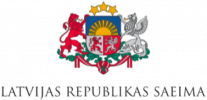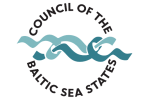On 28 June 2021, the members of the Baltic Assembly participated in the inaugural CERN Baltic Conference. During the first session “Policy and Strategy”, the importance of cooperation between the Baltic states and CERN was highlighted by high level experts from the Baltic states, as well as representatives from CERN and from the CERN Baltic Group.
Key conclusions from the conference
Minister of Education, Science and Sport of the Republic of Lithuania Jurgita Šiugždinienė informed about Lithuania’s relationship with CERN, which dates to 2004 and noted that “Baltic partnership in CERN has the potential to build the way towards excellent achievements and competitiveness in this field”. Minister of Education and Science of the Republic of Latvia Anita Muižniece introduced the participants with Latvia’s engagement in CERN, which began in 1996 in relation to CMS activities and added that “such collaboration not only has a clear commercial and knowledge transfer benefit, but also a gives prestige boost from the association with CERN”. Minister of Education and Research of the Republic of Estonia Liina Kersna highlighted that this time also marks an important milestone for all three Baltic states since soon all three will be full members of CERN, and that “building a tight community that knows and supports each other is a must for close connections with each other”.
Baltic Assembly and cooperation with CERN
President of the Baltic Assembly Andrius Kupčinskas addressed the participants by reminding that there is a great need to intensify cooperation of the Baltic states in the research area. "Since 2019 when informed about the recently established CERN Baltic Group, the Baltic Assembly understood that the organisation could have a pivotal role in promoting the cooperation between the Baltic states also regarding CERN. Since then, the Baltic Assembly has been actively involved in the issues connected with CERN and the Baltic states,” said Andrius Kupčinskas. He also added that the Baltic Assembly is convinced that cooperation in education and research of the Baltic states is vital because research, knowledge, and data of three countries are much more comprehensive and could allow to achieve much more, and that the Baltic Assembly is going to continue to follow the developments in the Baltic cooperation with CERN and to ask the governments to contribute to this important goal.
Priorities and recommendations of the Baltic Assembly in 2021 related with CERN
On 31 January 2020 representatives of CERN were invited to address parliamentarians in the Education, Science and Culture Committee of the Baltic Assembly. After the meeting, the importance of cooperation between the Baltic states in CERN, the need to support efforts of scientists and to motivate the Baltic countries to be actively involved was highlighted. In 2020, during the digital 39th Session of the Baltic Assembly recommendations were adopted and called on the governments:
1) to enable potential cooperation with CERN, providing to the development of science, research and technology in the Baltic states and allocate corresponding financial support within the State budgets which should be equal on the national level to the amount of membership paid to the CERN;
2) to consider the possibility to establish a CERN Internship Programme for the students of the Baltic states.
In July, answers from the governments of the Baltic states about the implementations of the recommendations will be received for concluding what has been done to promote cooperation of the Baltic states within CERN.
 Print
Print 









